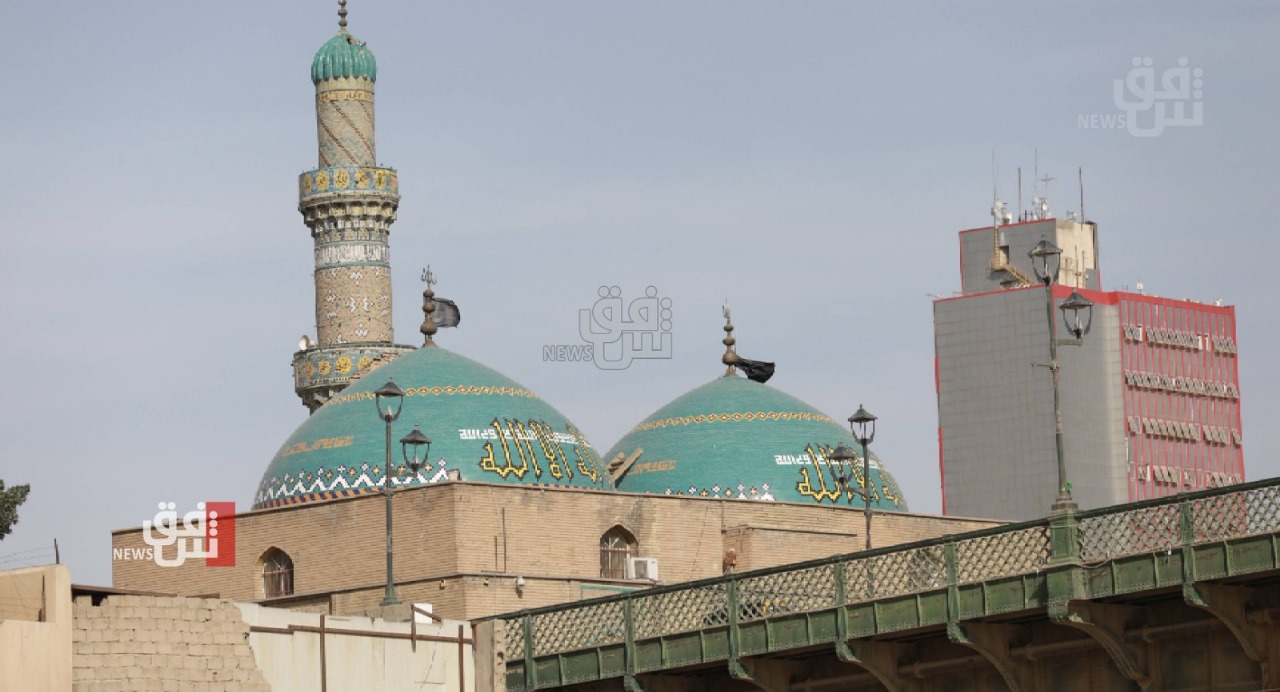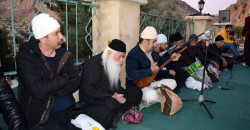Religion in Iraq: Heritage of civilization or a catalyst for conflict?

Shafaq News/ In Iraq, where civilization first took root, religion has long been a defining force, shaping its culture, politics, and identity. For millennia, the sacred and the secular have been deeply intertwined, leaving a legacy as rich as it is complex. From the towering ziggurats of Mesopotamia to Baghdad’s intellectual and artistic zenith during the Islamic Golden Age, faith has both united communities and, in modern times, fueled divisions.
Ancient Foundations: Birth of Religious Legacy
Iraq’s historical narrative is inseparable from its religious traditions. Long before the advent of Islam, the region—once known as Mesopotamia—witnessed the rise of some of the world’s earliest civilizations. The Sumerians, Akkadians, Babylonians, and Assyrians established city-states and empires that left an indelible mark on human culture.
Their religious practices, characterized by polytheism and elaborate ritualistic worship, laid the foundations for law, literature, and governance. Temples were not only centers of devotion but also hubs of economic and administrative activity, demonstrating the early integration of religious authority with statecraft.
Historian Ali Al-Nashmi noted that “the emergence of these ancient cultures was deeply intertwined with their religious worldview. The dynamic evolution of Mesopotamian beliefs—as communities grew, interacted, and sometimes clashed—set a precedent for a rich tapestry of religious thought. “
When Islam emerged in the 7th century, it encountered a land steeped in a history of religious pluralism. The arrival of Islam did not erase this legacy; rather, it merged with existing traditions to create an environment ripe for cultural and intellectual innovation.
The Islamic Golden Age in Baghdad, marked by unparalleled scholarly collaboration among Muslims, Christians, Jews, and other communities, further enriched this legacy. In that era, religious devotion and scientific inquiry coexisted and even reinforced one another, leaving a lasting imprint on global intellectual history.
Modern Struggles: Sectarian Conflict in Post-2003
Despite its illustrious past, the role of religion in modern Iraq has grown increasingly ambivalent—especially following the US-led invasion in 2003.
The dismantling of Saddam Hussein’s Baathist regime created a power vacuum that exacerbated preexisting sectarian divisions between Sunni and Shia communities.
What began as political and administrative disarray soon escalated into a brutal sectarian conflict. Armed factions, organized along religious lines, emerged as powerful forces and extremist groups like ISIS exploited these fractures to advance their own agendas.
Political leaders on both sides began to mobilize their constituencies by invoking religious rhetoric, deepening divides that had long lain dormant. This period of intense sectarian strife resulted in widespread violence, massive loss of life, and the displacement of countless communities.
The deep scars left by these conflicts continue to shape the social fabric of Iraq. Each sect, increasingly viewing the other as not only a political adversary but also a religious rival, struggles to reconcile the once pluralistic legacy of Iraqi society with the harsh realities of modern sectarian politics.
Rights activist Sara Jassim, speaking to Shafaq News, underscored that “religion in Iraq is not merely a spiritual practice but a fundamental component of our national identity, influencing social values, interpersonal relationships, and even political decisions.”
However, she warned that the politicization of religion for narrow political gains threatens to erode the very foundation of Iraqi society. For many, the longing for the days of religious coexistence and intellectual collaboration stands in stark contrast to the current atmosphere of division and conflict.
Political Framework: Sectarian Power-Sharing in Post-Saddam
One of the most defining features of modern Iraqi politics is the system of sectarian power-sharing established in the aftermath of Saddam Hussein’s fall.
The 2005 constitution introduced a framework in which political power is distributed among Shia, Sunni, and Kurdish communities—reflecting Iraq’s complex demographic mosaic. This arrangement was intended as a safeguard to ensure that no single group could monopolize national governance, thereby promoting a measure of stability in a deeply divided society.
While the power-sharing model has succeeded in preventing large-scale violence by ensuring representation for all major communities, it has also inadvertently reinforced sectarian identities.
Critics argue that the emphasis on sectarian quotas has entrenched divisions and made it difficult to forge a unified national identity. Political rivalries and disputes—particularly over resource allocation such as oil revenues and federal budget distributions—further exacerbate these fissures.
Proponents of the current system contend that it is a necessary compromise in a country with deep historical divides, as it provides a platform for all groups to voice their concerns and participate in governance. Yet, the challenge remains: how to evolve beyond a strictly sectarian framework and foster a cohesive national identity that transcends religious labels.
Voices for Balance: Reclaiming True Essence of Religion
Amid these complex challenges, several voices within Iraqi society are advocating for a balanced approach that honors the country’s rich religious heritage while rejecting its exploitation for political ends.
Rights activist Ahlam Salman argued that “the primary challenge facing Iraq today is not the diversity of religious beliefs, but rather the exploitation of that diversity for political gain.” Salman called for policies that respect religious pluralism and prioritize citizenship over sectarian affiliation, asserting that only by fostering a culture of dialogue and inclusiveness can Iraq hope to overcome its divisions.
Islamic scholar Sheikh Haider Al-Tamimi offered a similarly nuanced perspective. While he acknowledged that Islam provides a comprehensive ethical framework centered on compassion, justice, and social responsibility, he contended that its core teachings are often distorted to serve divisive agendas.
Al-Tamimi stressed that the true essence of Islam should promote “unity and mutual respect, rather than exacerbate societal rifts,” urging both religious leaders and political figures to return to the foundational values of the faith—a call that resonates with many who believe that Iraq’s historical legacy of tolerance and collaboration can still serve as a guiding light for the nation.
Toward a Unified Future: Harnessing Iraq’s Rich Heritage
The future of religion in Iraq hinges on the nation’s ability to transform its rich cultural and religious heritage into a force for national unity rather than division. This requires a multifaceted approach that involves political reform, educational initiatives, and robust civil society engagement.
Political leaders must strive to depoliticize religious symbols and rhetoric, ensuring that religious identity enhances rather than undermines national cohesion.
Educational curricula that incorporate Iraq’s diverse religious and cultural history can help foster a sense of shared identity among all citizens, while platforms for interfaith dialogue are essential for building mutual understanding and respect.
Economic reforms are also crucial. Addressing systemic challenges—such as corruption, resource mismanagement, and economic disparities—can help alleviate some of the grievances that often fuel sectarian conflict. By promoting transparency, accountability, and equitable resource distribution, Iraq can reduce the reliance on divisive political narratives and create a more stable environment in which its diverse communities can thrive.
Furthermore, religious institutions and civil society organizations must play an active role in this transformation. Historically, religious institutions in Iraq have been custodians of cultural heritage and mediators in times of social conflict.
Today, many religious leaders are calling for renewed interfaith dialogue and cooperative initiatives that transcend sectarian boundaries. Civil society organizations, through educational programs and community outreach, can support these efforts by promoting values of tolerance, inclusion, and mutual respect.
In answering the question—Is religion in Iraq a pillar of civilization or a catalyst for conflict?—the answer lies in the collective will of its people and their leaders. By embracing its diverse heritage and channeling it into a unifying force, Iraq can transform its ancient legacy into a roadmap for a peaceful, inclusive, and prosperous future.





